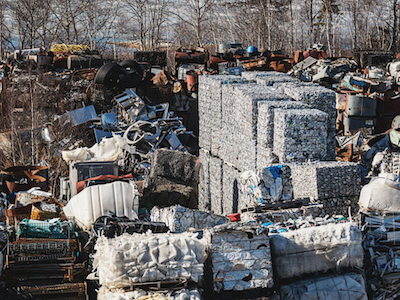Market
January 11, 2024
European scrap prices stabilise in a slow start to 2024
European scrap prices were stable to down m/m in January. Market participants slowly began to return to the market after the holidays, while sales stay slow. Scrap quotes currently range between €355 /t–€390 /t depending on the grade and country.
European scrap market participants cited weak demand as buyers and sellers were gradually returning to business from Christmas and new year holidays. Domestic scrap prices fell slightly m/m in Italy, but sellers’ intentions were to raise prices by €5–10 /t over upcoming weeks, given the recent upward momentum observed in the finished steel market. It remains to be seen if higher prices will be accepted by the market as many buyers restocked ahead of the new year and end-use real demand did not significantly picked up. However, restricted scrap availability continued to support prices.
Meanwhile, Turkish scrap HMS1/2 80:20 import prices decreased by $9 /t to $416 /t CFR in the first week of January compared to the end of December due to a slow start to the year as buyers awaited clarity on the price direction. However, moving to the second week of 2024, purchasing activity improved gradually as Turkish steelmakers returned to securing scrap supply. Latest deals are in the range of $415–425 /t CFR.
Russian domestic scrap prices continued to decline across all regions throughout December as mills pre-emptively built sufficient winter stocks. Additionally, falling finished steel prices in the local market put downward pressure on the raw material market. At the same time, scrap collection deteriorated with worsening weather conditions closer to the year end. To encourage scrap supply growth, steelmakers stabilised purchasing prices by the end of December and kept them relatively stable over the holiday period. In the Central region, prices fell by 1% m/m while prices in the Urals and Southern regions decreased by 2% m/m in early January.
Export prices rose by mid-December following the trend in the Turkish and European markets, however, reduced over the holiday period as buying activity deteriorated. In the first half of January, overseas shipments are seasonally reduced due to traditionally long New year holidays in Russia. Additionally, exporters were required to fulfil formalities with export licenses issuance, while new export quotas were being allocated. CRU continues to assess only indicative rates for the Black Sea export on the FOB basis as scrap shipments from the Southern ports of Russia remain prohibited.






